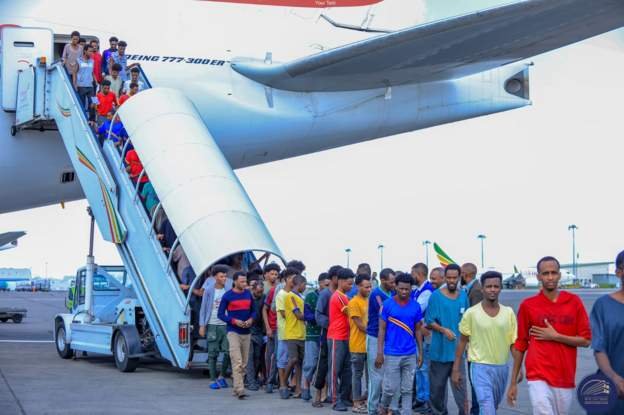Ethiopia’s Repatriation Efforts: Returning 70,000 Nationals from Saudi Arabia
The situation facing Ethiopian migrants in Saudi Arabia highlights the complex challenges and risks associated with irregular migration and the pursuit of better opportunities abroad. While Saudi Arabia has been a destination for many seeking employment and economic advancement, the conditions experienced by undocumented migrants, including detention and exploitation, underscore the vulnerabilities they face.
The Ethiopian government’s efforts to repatriate stranded migrants and provide support to those in need are commendable, but they also highlight the urgent need for comprehensive solutions to address the root causes of irregular migration. This includes addressing socio-economic disparities, creating employment opportunities, and enhancing legal pathways for migration.
Additionally, greater cooperation and coordination between countries of origin, transit, and destination are essential to ensure the protection and well-being of migrants throughout their journey. This includes efforts to combat human trafficking and smuggling, improve border management, and provide assistance to migrants in distress.
Ultimately, addressing the plight of migrants requires a holistic approach that prioritizes human rights, dignity, and the well-being of all individuals, regardless of their migration status. Only through collective action and commitment can we work towards creating a safer and more sustainable future for migrants worldwide.
The tragic shipwreck off the coast of Djibouti, resulting in the loss of lives, serves as a stark reminder of the risks and dangers faced by migrants undertaking perilous journeys in search of better opportunities. It underscores the need for concerted efforts to address the underlying factors driving irregular migration and to enhance protections for vulnerable migrants.
In addition to the immediate humanitarian response to such tragedies, there is a pressing need for long-term solutions that address the root causes of migration. This includes addressing issues such as poverty, unemployment, lack of economic opportunities, conflict, and political instability in countries of origin.
Furthermore, efforts to combat human trafficking and migrant smuggling networks are essential to prevent further loss of life and exploitation along migration routes. This requires cooperation and coordination between countries of origin, transit, and destination, as well as enhanced law enforcement measures and international cooperation.
Providing safe and legal pathways for migration, coupled with efforts to promote social and economic development in migrant-sending countries, can help reduce the desperation that drives irregular migration. It is also crucial to ensure that migrants are aware of their rights and have access to information, support services, and legal assistance throughout their migration journey.
Ultimately, addressing the complex challenges associated with irregular migration requires a comprehensive and multi-dimensional approach that prioritizes the protection and well-being of migrants while addressing the root causes that compel them to leave their homes in the first place.



















